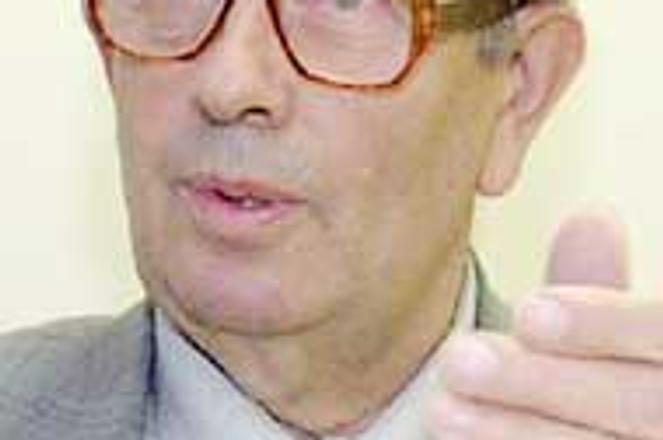VLADIMÍR Lexa Sr., father of the former spy-boss, wants son Ivan to come home.photo: Pavol Funtál - Sme
A COURT decision ruling out the prosecution of former secret service boss Ivan Lexa in the infamous 1995 kidnapping of the then-president's son has narrowed the chances that the case will ever be solved.
The Bratislava regional court on June 5 upheld the ruling of a lower court, which had argued Lexa could not be charged in the kidnapping because of a blanket amnesty in the case issued in 1998 by former Prime Minister Vladimír Mečiar, then acting president.
The state's inability to successfully prosecute the case has long troubled the country, especially after former secret service (SIS) deputy chief Jaroslav Svěchota confessed to the magazine Plus 7 Dní in 1999 that he had organised the kidnapping on Lexa's orders, and that then-PM Vladimír Mečiar had been "the spiritual father" of the crime.
Former Deputy PM Pavol Hamžík said on a June 11 TV talk show that the case file clearly demonstrated who had committed the offence, but that the amnesty had prevented the fulfilment of one of the Dzurinda government's most important promises to the electorate in 1998 - to investigate high-level political crime under Mečiar.
The kidnapping, and the subsequent 1996 murder of a police informer who was helping to build a case against the SIS, were among the main reasons western governments dropped Slovakia from the first group of Nato and European Union entrants in 1997. Mečiar, still the country's most popular politician, is even now rejected by the West, which says his acts while in government do not inspire confidence in his commitment to democracy.
Few legal tools remain to those who want the kidnapping case solved. The June 5 court decision may be appealed to the Supreme Court only by Justice Minister Ján Čarnogurský and Attorney General Milan Hanzel. The latter said on June 5 he would do so, and that he had a constitutional court decision to back up his argument.
The other possibility is altering the constitution by a parliamentary vote to wipe out the Mečiar amnesty. A bill to that effect is now in parliament, but as the legislature has twice defeated similar motions, and as legal experts still have misgivings about the legal precedent that would be created, the bill is seen as unlikely to pass.
The court decision has apparently emboldened Lexa's lawyers. Ľubomír Hlbočan told the Národná Obroda daily that he would be demanding compensation from the state for Lexa's 1999 jailing in the kidnapping case. Another Lexa lawyer, Juraj Trokan, said his client, who has been a fugitive from an international arrest warrant since escaping Slovakia in 1999, would only return to his homeland if parliamentary elections in September 2002 "guaranteed respect for the law in this state".
"If Ivan Lexa were now in Slovakia, he would surely ask how long [district attorney] Michal Serbin is going to violate his human and civil rights," said Hlbočan after the verdict.
But government politicians have dismissed such claims, saying Lexa only remains innocent on a technicality.
"The public already knows [who committed the kidnapping]," said László Gyurovszky, vice-chairman of the ruling coalition SMK party. "The SIS did it under the leadership of Ivan Lexa. Everything points to this. What happened recently is proof of the enormous moral quagmire that Mečiar's amnesty created."
Many cabinet members have also blamed the courts for their failure to prosecute Lexa, with PM Mikuláš Dzurinda recently saying judges "lacked the courage" to pursue politically sensitive cases.
The Bratislava regional court on June 5 returned another Lexa case to the Bratislava III district court for further investigation. Lexa remains under suspicion of fraud, extortion and abuse of power from his time at the SIS, but has yet to have a single case go to trial.
With almost seven years having elapsed since the kidnapping, and almost four since Dzurinda's promise to catch the perpetrators, calls are also growing for the country to put the case behind it.
"The public has already been traumatised enough," said Marián Mesiarik, vice-chairman of the ruling coalition SOP party. "If in four years we haven't been able to investigate anything through legal channels, maybe it's time to leave it to history."



